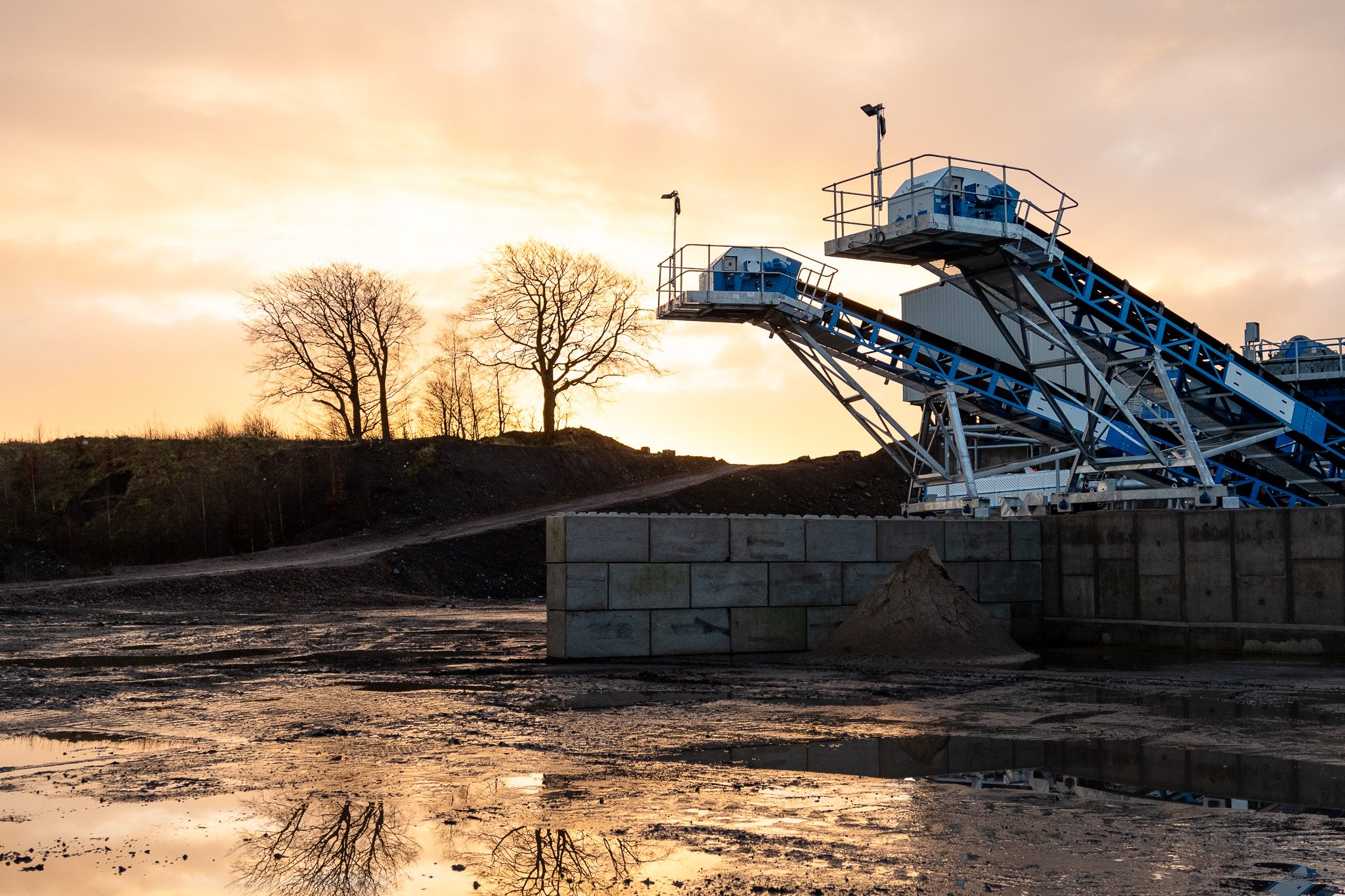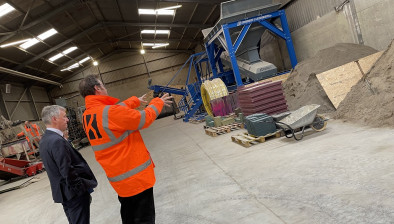Kenoteq and Brewster Brothers work together to reduce waste and carbon emissions

Kenoteq’s bricks in the new Tuk Tuk restaurant on Edinburgh’s Drummond Street
Scottish companies Kenoteq and Brewster Brothers are collaborating on reducing both waste and carbon emissions at the start of National Recycling Week (Oct 14th-20th 2024).
Brewster Brothers operates two state-of-the-art recycling plants in Central Scotland, recycling construction, demolition and excavation waste into recycled aggregates to save them from landfill and to see them used again within built environment applications, mostly within civil engineering projects. Since 2018, Brewster Brothers has diverted over 1.5 million tonnes of CD&E waste from landfill.
Kenoteq, a spin-out from Heriot-Watt University in Edinburgh, has developed and patented a new alternative route for these recycled aggregates, using them as the main material feedstock for the K-Briq, an ultra-low carbon brick which is unfired and made from nearly 100% recycled materials, giving it a carbon footprint of less than 5% of a traditional clay or concrete brick.
Already used within interior projects, 2025 will see the K-Briq becoming more widespread in exterior façades across Scotland once it gets its UK product certification later this year. On its journey to certification the product has won many awards and has been showcased at both COP26 through BE-ST in Blantyre and at COP28 in Dubai as part of a showpiece structure within the Sustainability Zone as well as at a ClimateTech exhibition opened by King Charles at Heriot-Watt University Dubai’s campus.

“Being pioneers of change needs a meeting of minds as well as cooperation,” explained Andrew Holt, Kenoteq’s chief executive officer. “Through collaborating with forward-thinking players like Brewster Brothers, Kenoteq is proud to lead the way in showing clients and specifiers how they can maximise use of high quality recycled materials within their builds and retrofit projects to help achieve net zero, through focusing on low embodied carbon as well as lower operational carbon.”
“If we are serious about our net zero goals, then we must highlight the link between waste generation and greenhouse gas emissions,” said Scott Brewster, managing director at
Brewster Brothers. “It is estimated that a world without waste could cut global emissions by 39% alone. Embodied carbon within our built environment can be reduced via the
incorporation of recycled and secondary materials in new construction.”
“Our recycled aggregates generate an 8kg of CO2e per tonne saving in their production, versus their virgin equivalents. This saving has recently been independently verified by BREEAM Ocial, via an Environmental Product Declaration. It may seem like an immaterial unit, but considering that approximately 29m tonnes of aggregate is consumed every year in Scotland alone, using recycled aggregates can quickly make an impact on a construction project’s overall carbon calculation. And through designing in products like the K-Briq helps reduce a project’s carbon emissions significantly further.”
Both winners of the VIBES Scottish Environment Business Awards for Circular Scotland, Kenoteq and Brewster Brothers are loud voices in lobbying for a greater focus on reductions in embodied carbon through Building Regulations at a Scottish and UK government level.

Brewster Brothers' wash plant equipment
“It is estimated that embodied carbon accounts for between 30% and 70% of the whole life carbon emissions from a building,” added Andrew. “It is therefore imperative that Building Regulations expand assessments beyond operational carbon to encompass embodied carbon if we are to see the real change and impact required to meet our net zero commitments.”
“It is through initiatives like National Recycling Week that we can share our ambitions for a net zero Scotland and highlight the ongoing change required to get there,” concluded Scott.
“Collaboration is key between all parties, government, public sector, industry and academia. We are on a journey and we must stay committed and take bold decisions for change to ensure a sustainable future for our planet and our future generations.”





















